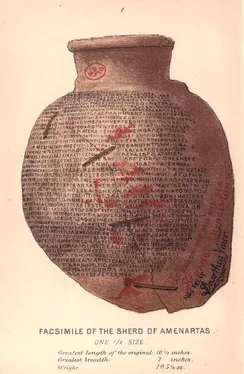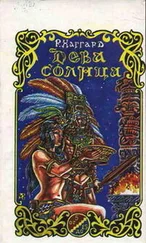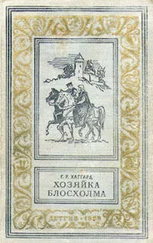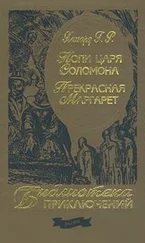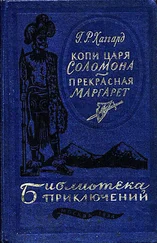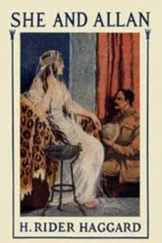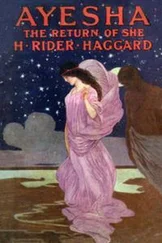I regret to say that I was never able to ascertain if She was invulnerable against the ordinary accidents of life. Presumably this was so, else some misadventure would have been sure to put an end to her in the course of so many centuries. True, she offered to let Leo slay her, but very probably this was only an experiment to try his temper and mental attitude towards her. Ayesha never gave way to impulse without some valid object.—L. H. H.
In connection with the extraordinary state of preservation of these ruins after so vast a lapse of time— at least six thousand years—it must be remembered that Kôr was not burnt or destroyed by an enemy or an earthquake, but deserted, owing to the action of a terrible plague. Consequently the houses were left unharmed; also the climate of the plain is remarkably fine and dry, and there is very little rain or wind; as a result of which these relics have only to contend against the unaided action of time, that works but slowly upon such massive blocks of masonry. —L. H. H.
Billali told me that the Amahagger believe that the site of the city is haunted, and could not be persuaded to enter it upon any consideration. Indeed, I could see that he himself did not at all like doing so, and was only consoled by the reflection that he was under the direct protection of She. It struck Leo and myself as very curious that a people which has no objection to living amongst the dead, with whom their familiarity has perhaps bred contempt, and even using their bodies for purposes of fuel, should be terrified at approaching the habitations that these very departed had occupied when alive. After all, however, it is only a savage inconsistency.—L. H. H.
After all we are not much in advance of the Amahagger in these matters. "Mummy," that is pounded ancient Egyptian, is, I believe, a pigment much used by artists, and especially by those of them who direct their talents to the reproduction of the works of the old masters.—Editor.
It will be observed that Ayesha's account of the death of Kallikrates differs materially from that written on the potsherd by Amenartas. The writing on the sherd says, "Then in her rage did she smite him by her magic, and he died." We never ascertained which was the correct version, but it will be remembered that the body of Kallikrates had a spear– wound in the breast, which seems conclusive, unless, indeed, it was inflicted after death. Another thing that we never ascertained was how the two women—She and the Egyptian Amenartas—were able to bear the corpse of the man they both loved across the dread gulf and along the shaking spur. What a spectacle the two distracted creatures must have presented in their grief and loveliness as they toiled along that awful place with the dead man between them! Probably however the passage was easier then.—L. H. H.
What a terrifying reflection it is, by the way, that nearly all our deep love for women who are not our kindred depends—at any rate, in the first instance—upon their personal appearance. If we lost them, and found them again dreadful to look on, though otherwise they were the very same, should we still love them? —L. H. H.
Curiously enough, Leo's hair has lately been to some extent regaining its colour—that is to say, it is now a yellowish grey, and I am not without hopes that it will in time come quite right.—L. H. H.
Конец ознакомительного отрывка
Купить книгу
